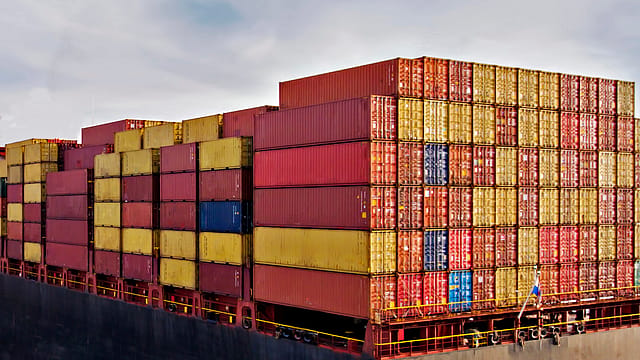Commerce ministry sets up mechanism to examine import surge across commodities
ADVERTISEMENT

The Union commerce ministry has begun regular monitoring of the import surge occurring across commodities in India. The recent move by the Directorate General of Foreign Trade (DGFT) to restrict the import of alloys of palladium, rhodium, and iridium containing more than 1% gold by weight, as well as to restrict the import of colloidal metals and compounds, was the outcome of close scrutiny of such surge reports, a senior commerce ministry official said.
“Whenever we find an unusual surge in imports, we have started to examine it. If it’s because of any malpractice, we are instructing DGFT’s office to take remedial measures. We look at all commodities,” the official said.
In a notification on June 17, the DGFT introduced restrictions on the import of alloys of palladium, rhodium, and iridium containing more than 1% gold by weight as an additional measure over and above the restriction on the import of platinum that was notified on March 5. The DGFT stated that with the new notification, restrictions will cover the entire Customs Tariff Heading (CTH) 7110 at the 4-digit level, thereby ensuring uniformity in the import policy governing precious metals and their alloys.
The DGFT said that the policy continues to facilitate trade by allowing free import of alloys containing less than 1% gold, thereby ensuring continued availability of inputs for industrial and manufacturing sectors, including electronics, auto components, and specialised chemical industries, without disruption.
In a separate notification on the same day, the DGFT also imposed restrictions on the import of colloidal metals and compounds covered under CTH 2843. This was necessitated to regulate the import of gold in the garb of chemical compounds.
Again, the notification made it clear that import will be allowed for industrial and manufacturing sectors, including electronics, electrical, and specialised chemical industries, against an import authorisation—thereby addressing the needs of domestic industry without disrupting actual use.
Incidentally, the ministry had carried out a detailed examination of the unusual surge in the import of precious metals in November, based on provisional data released on December 16, 2024. However, it was found to be a case of double counting, which occurred due to the migration of the data transmission mechanism from SEZ to ICEGATE. It was noticed that the figures for precious metals needed revision, as the system was calculating both imports into SEZs and subsequent clearances into the DTA as separate transactions after the migration.